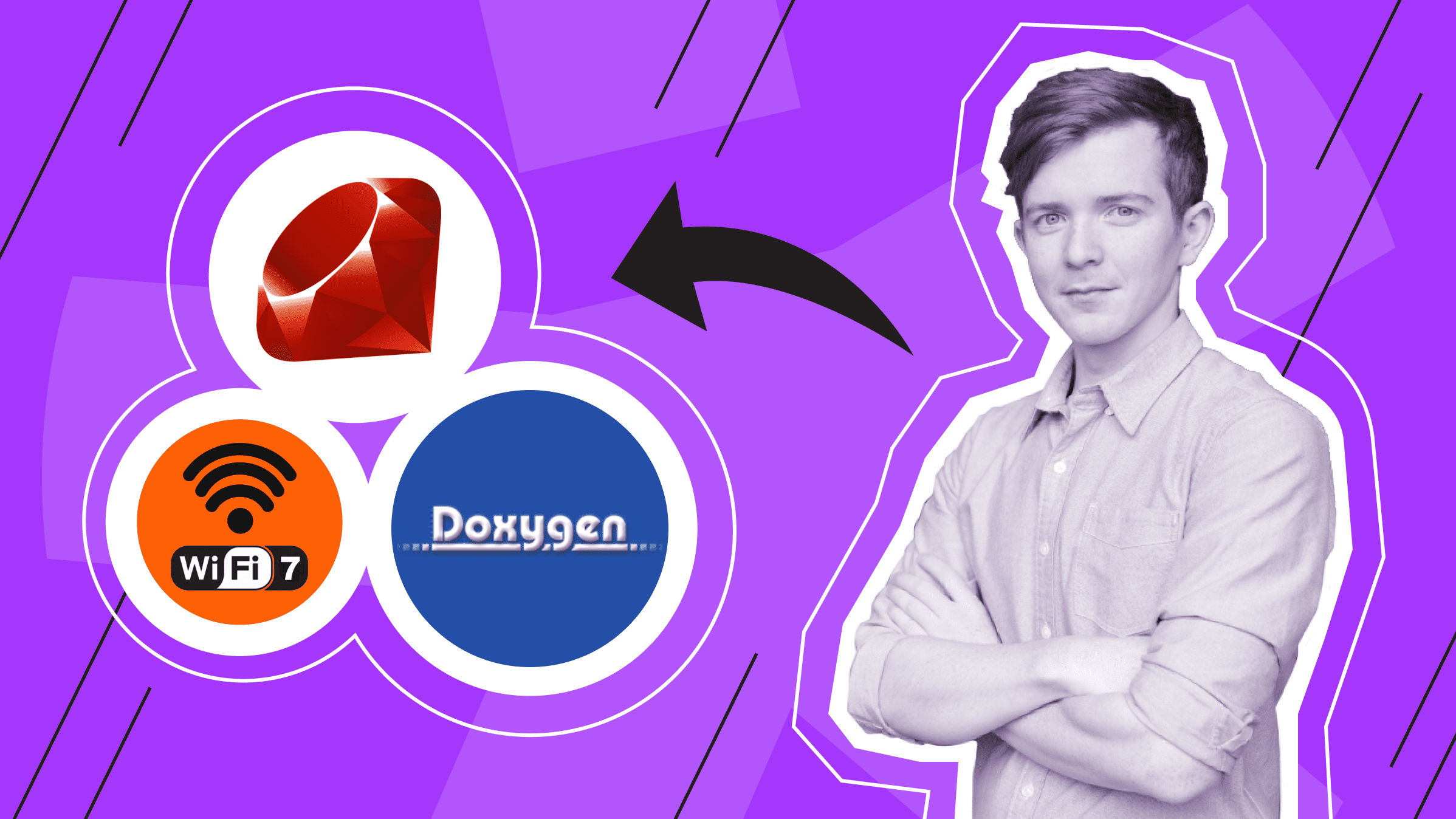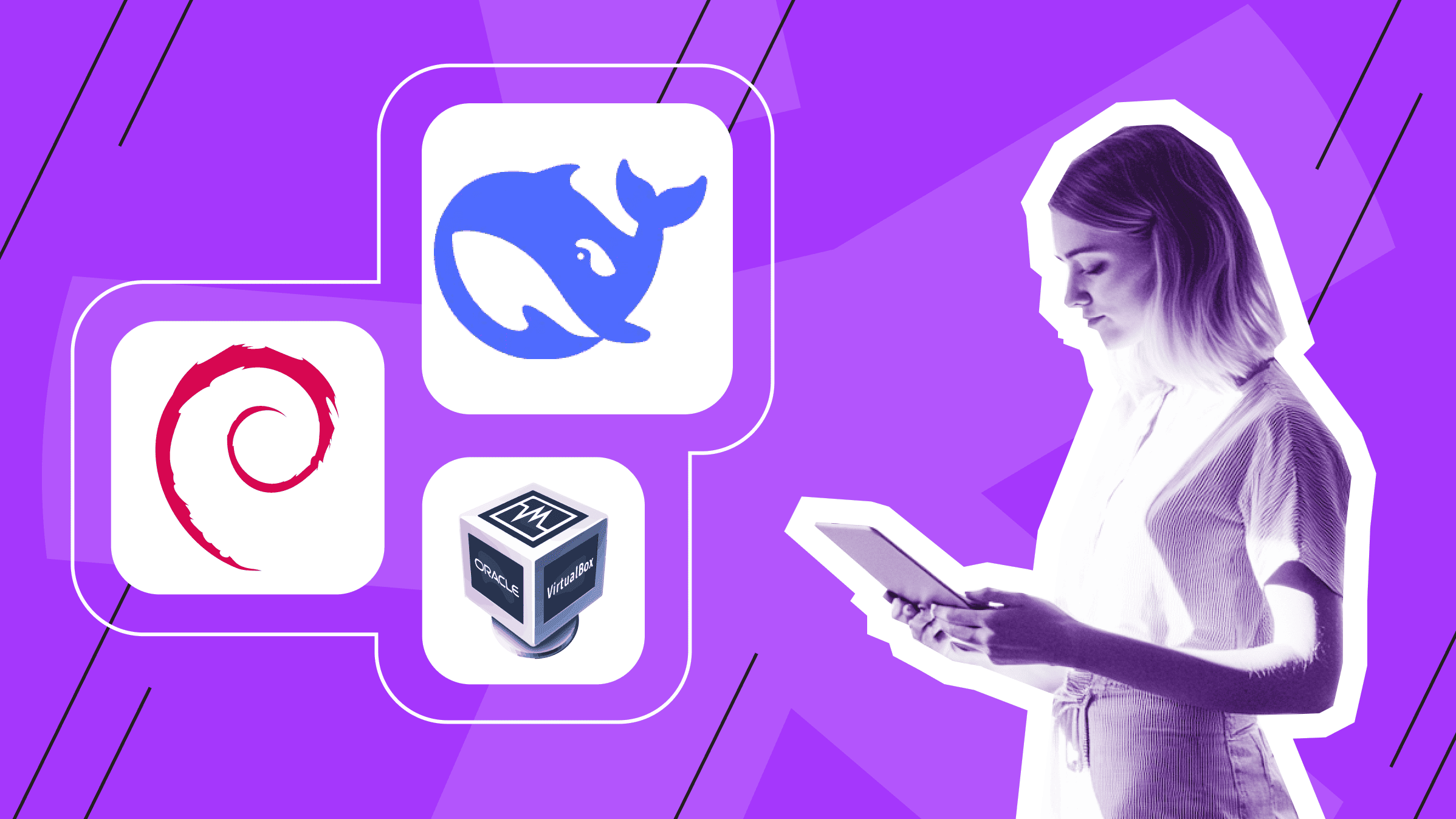
2023, like all years, brought us many new things in technology, education, science, and changed something in everyone's life. Neural networks made a lot of noise in 2023 and quickly spread to different areas of IT. But that's not what we're talking about today. Let's take a look at what the past year has given us in December and what we can expect in 2024.
Annual Developer Survey from JetBrains

The State of Developer Ecosystem Report provides information on programming languages, tools, technologies, demographics, and fun facts. JetBrains surveyed 26,348 developers worldwide to gain insights into the development sphere.
Rust is the only mainstream language to set a new popularity record this year. It aims to replace C++ and may initially overtake Go. One in six Go users is considering switching to Rust.
Rust and Scala stand out as the languages that the least number of programmers want to switch from. Over the past three years, the top three programming languages have remained unchanged, but JavaScript's share has steadily declined.
In 2023, Scala, Go, and Kotlin developers will be among the highest-paid categories.
However, the percentage of female developers has remained stagnant at 5% of all respondents since 2021. Additionally, South Korea represents approximately 14% of female developers under the age of 30.
And here are some additional statistics:
- In a recent survey, 77% of developers reported using ChatGPT, while 46% reported using GitHub Copilot.
- AI assistants are commonly used by developers to ask general questions about natural language software development.
- 73% of developers have experienced burnout in their career
- 22% of developers were employed in other fields before transitioning to IT.
Ruby 3.3 Release

Matz, or Yukihiro Matsumoto, developed the Ruby language in 1993. It is currently an open-source language that runs on multiple platforms and is widely used for web development. Many tech startups and Silicon Valley unicorns, including Airbnb, GitHub, Twitter, and Twitch, use Ruby.
Ruby 3.3.0 was released on December 25, 2023, introducing new features and improvements.
- The default parser has been updated to Prism, which is portable, error-resistant, and easy to maintain. Additionally, the parser generator has been changed to Lrama from Bison.
- The just-in-time compiler, YJIT, has also undergone significant performance improvements, including better support for splat/rest arguments, optimized register allocation, compiled exception handlers, and optimizations for common methods.
- YJIT has significantly improved memory utilization through more compact metadata and code generation.
- RJIT, a new JIT compiler for pure Ruby, has been introduced for experimental purposes only.
- The M:N thread scheduler enables better thread management with fewer OS threads.
- Numerous standard library gems, including popular ones like RubyGems, Rails, and Bundler, have been updated.
The release includes more than 55,000 file changes and over 300,000 lines of code added since the release of Ruby 3.2.
Documentation System Doxygen 1.10 Released

Doxygen is the standard tool for creating documentation from annotated sources in various programming languages, including C++, C, Objective-C, C#, PHP, Java, Python, IDL (Corba, Microsoft and UNO/OpenOffice), and Fortran. It also supports the VHDL hardware description language. A new version of Doxygen 1.10 documentation system was released in December.
The Doxygen 1.10 release includes numerous bug fixes, new code refactoring and cleanup features, and other enhancements.
- Added a new option, HTML_COPY_CLIPBOARD, to copy code fragments to the clipboard.
- Also added the PROJECT_ICON option to specify the icon to be displayed when HTML is output,
- and the HTML_PROJECT_COOKIE option to allow different projects to use different cookies.
- Optional width and height specifiers have been enabled for PROJECT_LOGO.
- Additionally, JSON output has been added to doxyapp.
- The Portuguese translators have been updated to version 1.10.0.
What to Expect in 2024?
Release of Stable Linux 6.7
Linus Torvalds announced that the release of the stable version of Linux 6.7 has been postponed from December 31 to January 7, 2024, in order to reduce the stress of maintainers on New Year's Eve.
The original plan was to release rc7 on December 24 and the stable version 6.7 on December 31. However, due to the holidays, the dates have been postponed. Torvalds informed the developers involved of this change in a letter.
Torvalds plans to release rc7 on December 23, rc8 on January 7, and the stable version 6.7 also on January 7. The code merge window for version 6.8 will open on January 8 to avoid excessive load on the accompanying kernels. This may impact the March releases of some Linux distributions that had planned for version 6.8.
Wi-Fi 7
The IEEE P802.11be™ standard, also known as Wi-Fi 7, is currently being developed by a group of technical and industry experts at the IEEE Standards Association (IEEE SA). It is expected to be completed by 2024.
This standard is a significant advancement in Wi-Fi technology, offering faster data rates of approximately 40 Gbps, which is four times faster than standard speeds, and wider bandwidth with 320 MHz channels compared to Wi-Fi 6's 160 MHz channels. Additionally, the standard enables more efficient and reliable use of available and adjacent spectrum through multi-band/multi-channel aggregation and other methods.
The standard includes improvements to MIMO protocols and existing Wi-Fi capabilities.
IEEE P802.11be, IEEE 802.11ax, and future iterations of the IEEE 802.11 standards can support next-generation Wi-Fi applications, such as battery-powered and environmentally powered Internet of Things (IoT) networks, augmented/virtual reality (AR/VR), artificial intelligence/machine learning (AI/ML), and other features.
Windows 12
At the recent Taiwan Expo, Quanta Chairman Lin Baili and Acer CEO Chen Junsheng provided information on the upcoming release of Windows, as reported by the Commercial Times (CTEE).
Windows 12 is set to release in June 2024 and will introduce numerous artificial intelligence technologies, positioning itself as the leader in AI-enabled PCs.
Windows Latest previously reported that Windows 12 can be expected in the fall of 2024 with a wider rollout in 2025. Data about the next generation of Windows appeared in one of the presentations at the Build 2023 conference.
Windows users in this case can only wait for official confirmation.
Have a great month, and see you in the next is*hosting digest!



